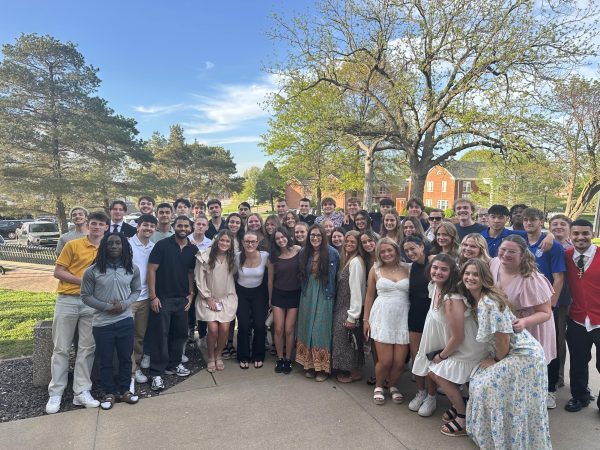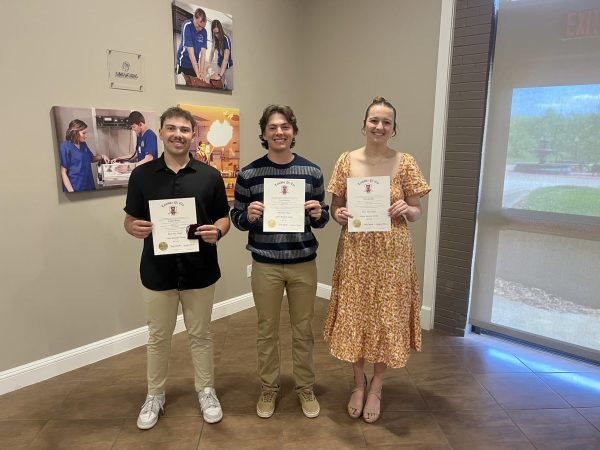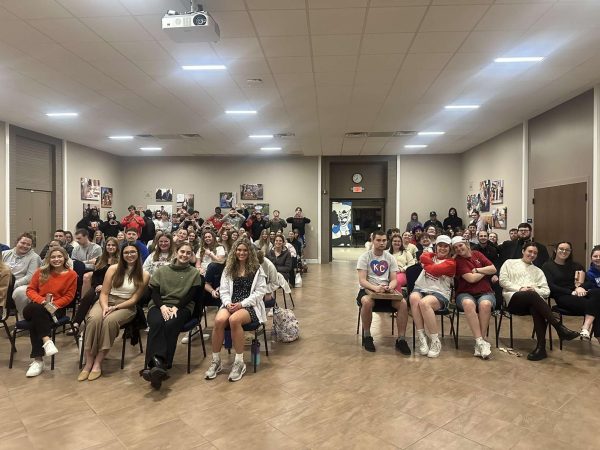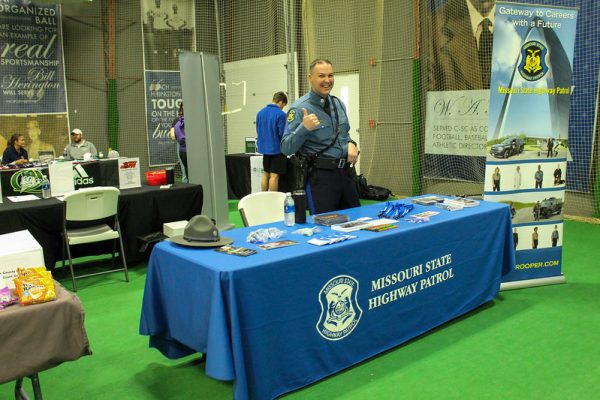Dr. Alissa Burger, Published and Never Bored

Dr. Alissa Burger taken from the Culver.edu website.
On campus Dr. Alissa Burger is known as Chair of the English Department, Director of Writing Across the Curriculum, and the Director of Retention. And, as if that wasn’t enough, she is also an academic scholar and published writer. As her students know, Dr. Burger always strives to find ways to make the content she’s teaching as engaging as possible. Her most recent journal article, “Visualizing Poe: Graphic Novels, Extraordinary Tales and The Simpsons” was featured in “Teaching American Literature: A Journal of Theory and Practice.”
Recently, Wildcat Wire spoke with Dr. Burger to gain better insight into the connection between teaching at Culver-Stockton College and being published.
Wildcat Wire: How do you find the time to get published along with everything else you do here at Culver-Stockton?
I do a good deal of my scholarly work on the weekends and over breaks, so that keeps me pretty busy when I’m not here on campus. Most of the scholarly work I do also connects directly to my teaching, so the things I’m talking about with students in my classrooms are often the same things that I’m working on and writing about in these journal articles or book chapters, which creates a great relationship of being able to really inform my scholarship with my teaching and vice versa, as well as sharing the process and those adventures with my students.
Can you give a brief description of what your article is about?
This article is about teaching Edgar Allan Poe through use of different visual means: graphic novels, the anthology film Extraordinary Tales, and a few episodes of The Simpsons. A lot of people have read Poe in high school, but adding the visual element allows us to get a whole different understanding of what it is Poe is saying – we can see the creepy setting of “The Fall of the House of Usher” or get the auditory experience of what the “tell-tale heart” sounded like or the rhythm and flow of language in “The Raven.” There’s a lot of emotion in Poe that if you just read through it as words on a page, you could easily miss or not grasp the full impact of, so seeing these images and hearing these voices brings it to life in a whole new way. The Simpsons especially also help us think critically about the impact of Poe on contemporary culture – how he’s remembered, what he means, how we think about his work.
Would this be an article you would go to a conference and speak about?
That’s actually how this article started. I have been using these different approaches to teach Poe in American literature classes for the past several years and a few years ago, I delivered a paper on this same topic at the Midwestern Modern Language Association (MMLA) conference. When the opportunity came up to develop it further into a journal article, I had already been building on this idea, sharing it with students and colleagues, for a while. It’s great to see it in this new form and reaching a wider audience, but it’s 100% something that started in classroom discussions right here on campus.
How has COVID affected you and publishing your writings? Has it made it more difficult, easier, or has it not changed at all?
There have been some delays and disruption on the publishing side of things, but that mostly just means that I’m not sure when things will come out. The work part of it – the research and writing – really haven’t changed much at all. The only challenge has been when MOBIUS stopped running early in the pandemic and I had a hard time getting books through inter-library loan.
Are you working on any more articles or books currently?
A bunch. Sometimes when you sign on for a project, you don’t know when that final product will be due and in this case, I have several deadlines that are all falling at the same time. For example, at the end of next week, I have three different things due – a book chapter on epistemologies of horror, a book chapter on Stephen King’s mystery novels, and a journal article revision about the Hulu series Castle Rock. Next month I have a book chapter on Shirley Jackson due and some encyclopedia entries on LGBTQIA+ representation in popular culture. I have a book due on IT Chapter 1 and IT Chapter 2 due to the publisher early this summer and am in the process of doing final page proof edits and indexing for a book on Stephen King’s Dark Tower series. I’m definitely never bored!
Lastly, how do you feel about the attention received from accomplishments like this?
Of course, it’s nice to have hard work recognized in anything we do. But I think the best kind of attention is when I can talk to students about this work and share these experiences with them, sparking conversations in the classroom or being able to give students some insight into the writing or publishing process, if that’s an area they’re interested in. That’s the best.





